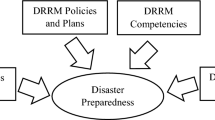Abstract
Political, economic and social development requires "good governance" and intelligent decision-making. Development decision centers (DDC) equipped with appropriate information technology (IT) can help to improve development decisions, increase effectiveness and efficiency of public and private administration and support democratization and political stability.
DDC provide IT-based facilities for brainstorming, discussion, organization and evaluation of ideas, objectives, strategies, projects, etc. They can be integrated into community information centers or established within government agencies, business corporations, universities and other institutions of higher learning to offer assistance in solving complex development problems that require close collaboration of decision-makers and experts.
The paper analyzes political, socio-cultural and economic development problems, and suggests to use appropriate IT and group support systems as an innovative strategy to overcome such problems. It demonstrates the proposed approach by presenting typical steps and results of development planning in a DDC, the author has built up at the University of Dar Es Salaam, Tanzania. This center is believed to be the first in Africa and may be considered as a prototype of a DDC which could become a standard facility in community information centers to help integrate improve effectiveness, efficiency, transparency and accountability of development decision-making.
Similar content being viewed by others
References
Aiken, M. et al. (1995). “A Korean Group Decision-Support System”, Information and Management 28, 303–310.
Blunt, P. (1995). “Cultural Relativism, Good Governance and Sustainable Human Development”, Public Administration and Development 15, 1–9.
Camacho, L.M., and P.B. Paulus. (1995). “The Role of Social Anxiousness in Group Brainstorming”, Journal of Personality and Social Psychology 68, 1071–1080.
Enterprise Solutions Inc. (1994). MeetingWorks for Windows. The Technology of Consensus. Seattle.
GTZ. (1983). ZOPP. Ziel-Orientierte Projekt-Planung. Eschborn.
Hakken, D. (1991). “Culture-Centered Computing – Social-Policy and Development of New Information Technology in England and the United States”, Human Organization 50, 406–423.
Hofstede, G. (1983). “The Cultural Relativity of Organizational Practices and Theories”, Journal of International Business Studies 14, 75–89.
Hofstede, G. (1994). Cultures and Organizations. Intercultural Cooperation and Its Importance for Survival. London: HarperCollins Publishers.
Kraemer, K., V. Gurbaxani, and J. King. (1992). “Economic Development, Government Policy, and Diffusion of Computing in Asia-Pacific Countries”, Public Administration Review 52.
Lewis, L.F. (1982). Facilitator: A Microcomputer Decision Support System for Small Groups. Unpublished doctoral dissertation, University of Louisville.
Lewis, L.F. (1994). A Brief Introduction to Group Support Systems. Bellingham: MeetingWorks Associates
McNurlin, B. C., and R.H. Sprague. (1989). Information Systems Management in Practice, 2nd edition. Englewood Cliffs, New Jersey: Prentice Hall.
Pava, C. (1982). “Microelectronics and the Design of Organization”, Working Paper No. HBS 82-67, Harvard Business School, Division of Research, Soldier Field, Boston, Mass.
PCI. (1970). The Logical Framework. A Manager's Guide to a Scientific Approach to Design and Evaluation. Washington, DC.
Petrovic, O., and O. Krickl. (1993). “Traditionell-moderiertes vs. computergestütztes Brainstorming. Eine vergleichende Betrachtung, Wirtschaftsinformatik 2, 120–128.
Pliskin, N. et al. (1993). “Presumed Versus Actual Organizational Culture – Managerial Implications for Implementation of Information-Systems”, Computer Journal 36, 143–152.
Roberts, A. (ed.) (1968). Tanzania before 1900. Nairobi: East African Publishing House.
Talero, E., and P. Gaudette, (1995). Harnessing Information for Development. Washington, DC: The World Bank.
WorldBank. (1992). World Development Report 1992. Development and the Environment. New York: Oxford University Press.
WorldBank. (1996). “Information For Development Program (infoDev). Guidelines for Activity Proposals. Washington.
Author information
Authors and Affiliations
Rights and permissions
About this article
Cite this article
Splettstoesser, D. Electronic decision-making for developing countries. Group Decision and Negotiation 7, 417–433 (1998). https://doi.org/10.1023/A:1008699902917
Issue Date:
DOI: https://doi.org/10.1023/A:1008699902917




